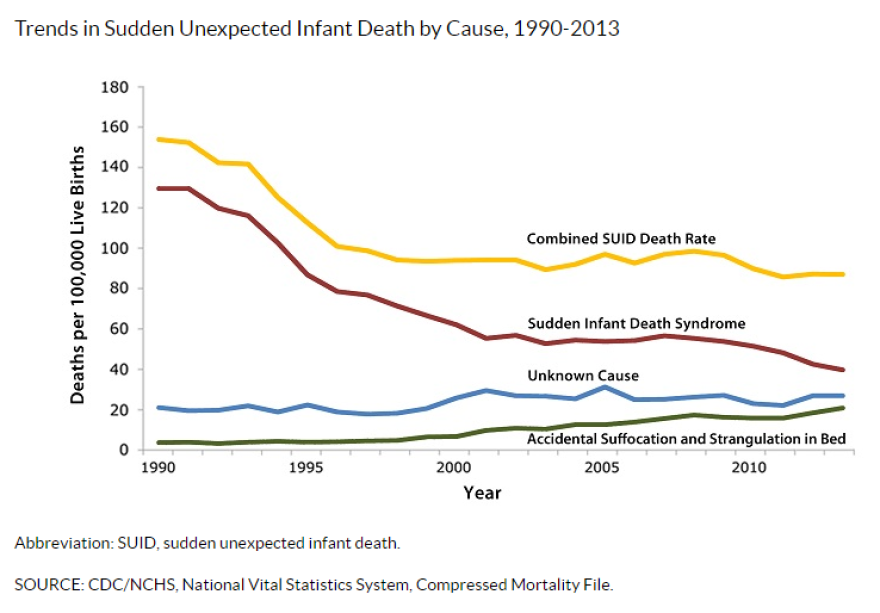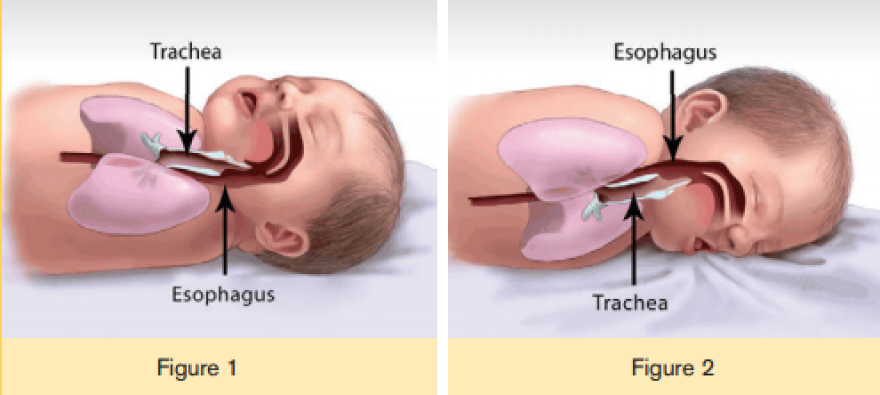Each year about 3,500 babies inexplicably die of SIDS - Sudden Infant Death Syndrome. Texas’ infant death rate is higher than the national average. Bexar County has the highest rate in the state.
While some infant deaths can be prevented, many families lack knowledge or resources.
Bexar County hospitals are working to improve education, while some local leaders are raising money for more research.
The cause of death listed on Rex Neal Van de Putte’s death certificate, reads “unknown.” He lived to be five months old.
Rex’s grandmother, former Texas legislator Leticia Van de Putte, says she and her family are still recovering from the tragedy two years later.
“Rex was a happy, healthy, thriving baby boy," says Van de Putte. "And the worst day in our lives was on that May 7 when everybody woke up, except him.”
Van de Putte says investigations and toxicology reports attribute the death to SIDS. There are practices that reduce risk, but Van de Putte says she knows of nothing that could have prevented her grandson’s death.
While many cases have no explanation, research cites “accidental suffocation and strangulation in bed” as a huge cause of SIDS, according to Dr. Sanjuanita Garza-Cox, neonatologist at Mednax Neonatology, and Chief of Staff for the Children’s Hospital of San Antonio.
“We do know that education is a big risk factor as well as socioeconomic means," says Garza-Cox.
She says families need to know safe sleep practices: place babies on their backs; use a pacifier; no pillows, extra blankets, or bumper pads in the crib. One of the most important things is to not sleep in the same bed as your child.
“For the 'accidental strangulation and suffocation in bed' they don’t have the means for them to afford a safe sleeping place for the child or they simply don’t know that they should,” says Garza-Cox.

While SIDS affects rich and poor families alike, Garza-Cox believes the high rate of poverty in San Antonio and surrounding communities could be contributing to the high SIDS rate. Eleven Bexar County babies died of SIDS in 2011. That number rose to 20 last year. And while the number of unexplained SIDS deaths remained constant, the number of deaths where the cause was known and could have been eliminated is growing. They comprised 80 percent of the cases.
Garza-Cox and her peers took note of the data.
"We decided to do something and to try to standardize how we educate the families when they have a new baby," says Garza-Cox. We did find out quickly that each hospital system was doing it differently.”
Some families weren’t getting all the information. Some may have not gotten any at all. She says this year, all six Bexar County hospitals have a checklist, standard materials and bilingual videos they must share.
“Now, the next step we’re already taking, is making sure the hospital floors, the ER’s and the pediatricians’ clinics are also providing the same information," says Garza-Cox. "As we all well know this starts way before the family has a child. (It’s) just like breastfeeding. You’ve got to start talking to those family’s before the baby is born otherwise breastfeeding may not take off, safe sleeping may not take off. So, now we’ve got to talk to all the providers in Bexar County, especially the obstetricians.”
Garza-Cox hopes that someday all the causes of SIDS will be known. But for Leticia Van de Putte and her family, that someday didn’t come soon enough. She says many people don’t understand experiencing tragedy without closure.
“What is the most help is if somebody is just with you, and they hug you and they tell you-I am with you in your sorrow.”
“Don’t try to explain it away, because in the case of SIDS, until we do more research, there is no explaining why.”
This Saturday Van de Putte is taking a step toward finding the answers with the third annual Walk or Run for Rex. The event raises money for SIDS research. For Van de Putte and her family – it’s part of the healing process.
"We knew that we wanted Rex’s death to mean something, and to not be forgotten," says Van de Putte.

